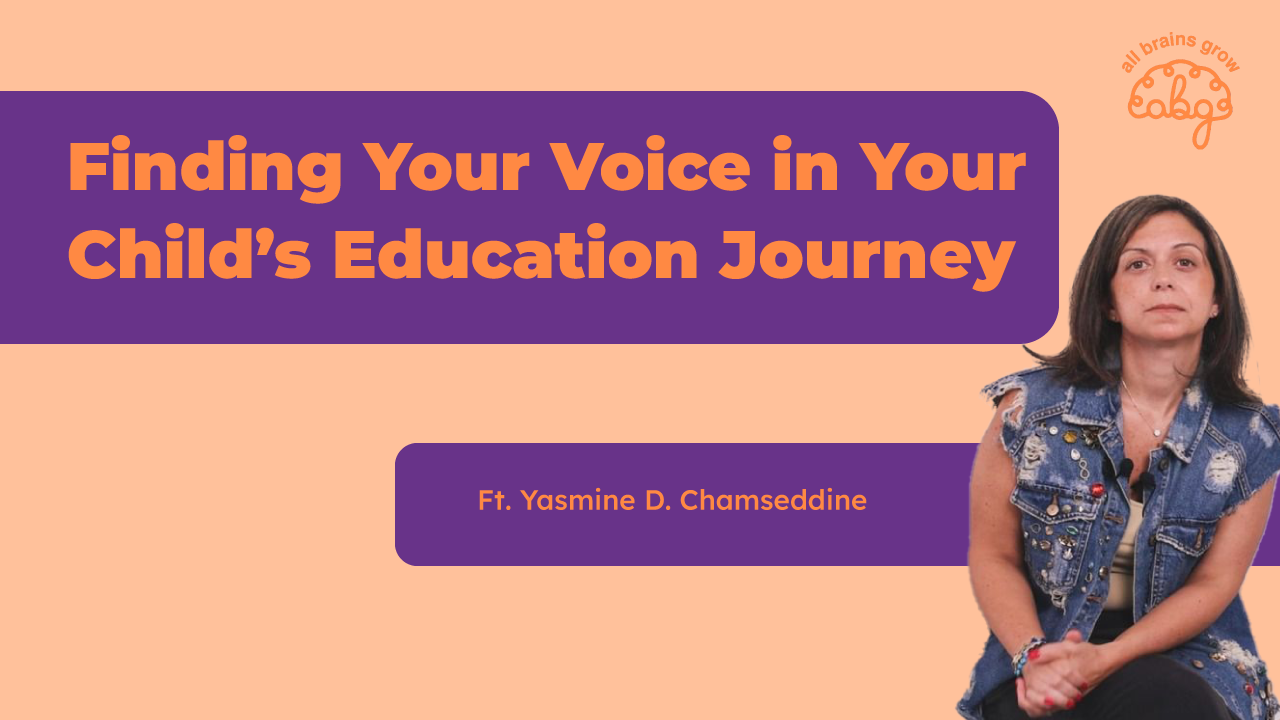The Teacher-Therapist-Parent Trap with Yasmine D. Chamseddine
Jul 03, 2025
I once chose a speech therapist for my son because I wanted him to have French language exposure. She was highly qualified, structured, and very strict. But after a few sessions, my gut told me something was off. Her tone, her approach—it just didn’t feel right for us.
I ended the sessions, but I was left with a nagging doubt. Did I do the right thing? She was good at her job, but was she good for my child? What are my rights here?
If this story sounds familiar, you’re not alone. This "triangle" between parents, therapists, and schools is often where our biggest anxieties live. My conversation with Yasmine Chamseddine, a seasoned speech therapist and coach, shed light on how to navigate this maze without losing your mind—or your intuition.
The Pressure Cooker: Schools, Labels, and Social Media
We often feel the first wave of pressure from schools. A teacher mentions a concern, a nursery suggests an assessment, and suddenly, we’re plunged into a world of doubt.
Yasmine highlights a critical problem: the approach. There's a vast difference between a school saying, “We’ve noticed something; maybe talk to a specialist?” and “Your child has a problem; you must see this therapist.” The first is an open door for conversation. The second is a diagnosis-by-proxy that can create a self-fulfilling prophecy.
This is compounded by the "nominal effect"—once you start the assessment process, you feel pressured to continue it. Add in the noise of social media, where every childhood behavior can be misconstrued as a symptom of a major disorder, and it’s no wonder parents feel overwhelmed.
The Power of a Single Conversation
In a world of forms and reports, Yasmine champions a radical idea: the human conversation.
Her process is deliberate:
- Meet First, Read Later: She insists on meeting the family before looking at any reports to avoid bias.
- Explain, Don’t Just Label: When she uses a term like "dyslexia," she immediately follows it with a clear, practical explanation. Parents often panic at the word, but they feel relief when they understand what it actually means for their child’s daily life and learning.
- Deliver Results in Person: She never emails a report and disappears. She sits with parents, walks them through the findings point by point, and answers their questions. This respects their right to understand, agree, or even disagree.
You Have More Rights Than You Think
One of the most empowering parts of our talk was realizing that parents have agency in this triangle. You are not a passive recipient of decisions.
Your key rights include:
- The Right to a Team Meeting: You can and should request a meeting that includes you, your child’s teacher, the school principal, and your child’s therapist. The therapist’s role is to translate their report into practical classroom strategies. As Yasmine says, “I don't believe that a principal is supposed to understand a specialist report.”
- The Right to Ask "Why": If a school or therapist makes a recommendation, you have the right to understand the reasoning behind it.
- The Right to Your Gut Feeling: Yasmine’s core advice: “If you are not at ease, or your child is not at ease, then there's something. Something has to change.”
How to Be an Empowered Advocate
So, how do you step into this role without burning bridges?
- Do Your Homework: Check a school’s website and policy documents. Know what they are realistically able to provide before you make demands.
- Prepare for Meetings: Before any school meeting, talk with your therapist. Have a list of clear, reasonable questions and requests.
- Trust Your Instincts: If a therapeutic setting, approach, or professional doesn’t feel right for your family, it’s okay to make a change. The right fit is everything.
Yasmine even tells parents in their first session: “Whenever you feel you don't agree with what I'm saying, or something is bothering you, just say it.” This should be the standard, not the exception.
Navigating your child’s neurodivergent journey is not about finding a single "fix." It's about building a supportive team where you, the parent, are the captain. Your voice is not just important—it is essential.
Hear the full story on the podcast.

